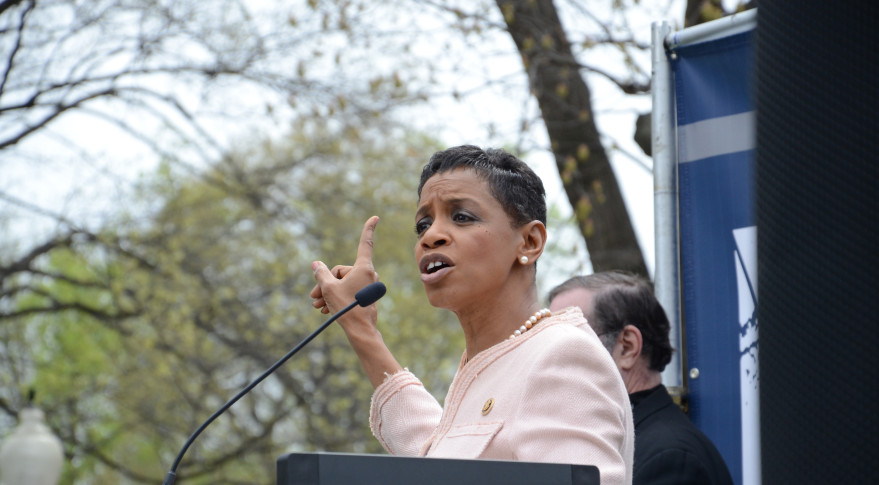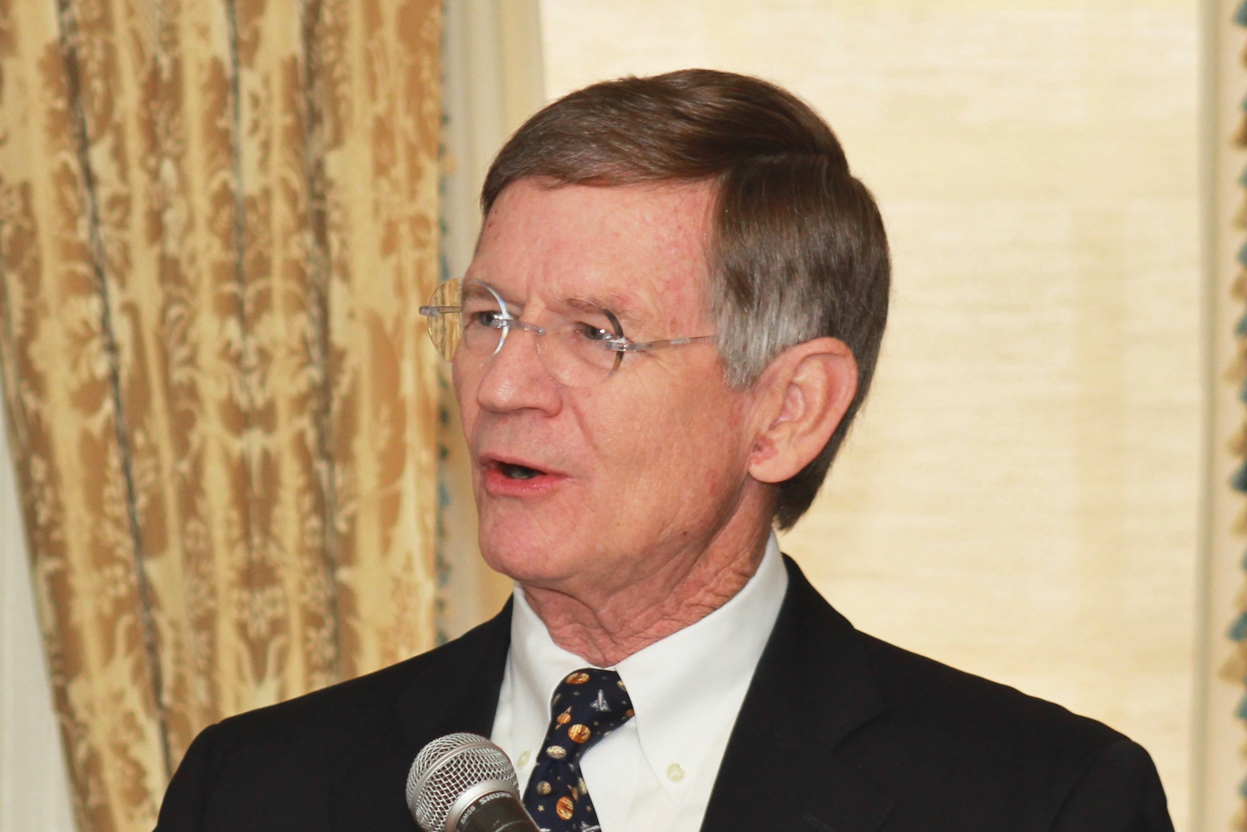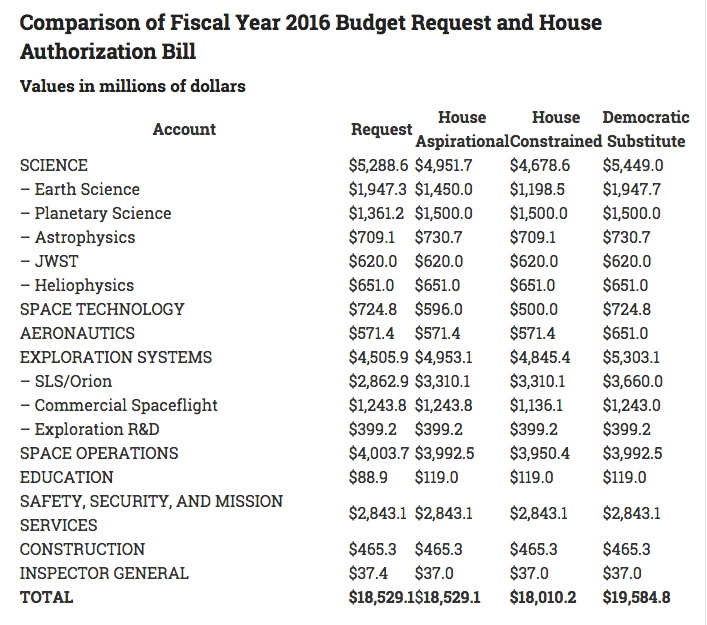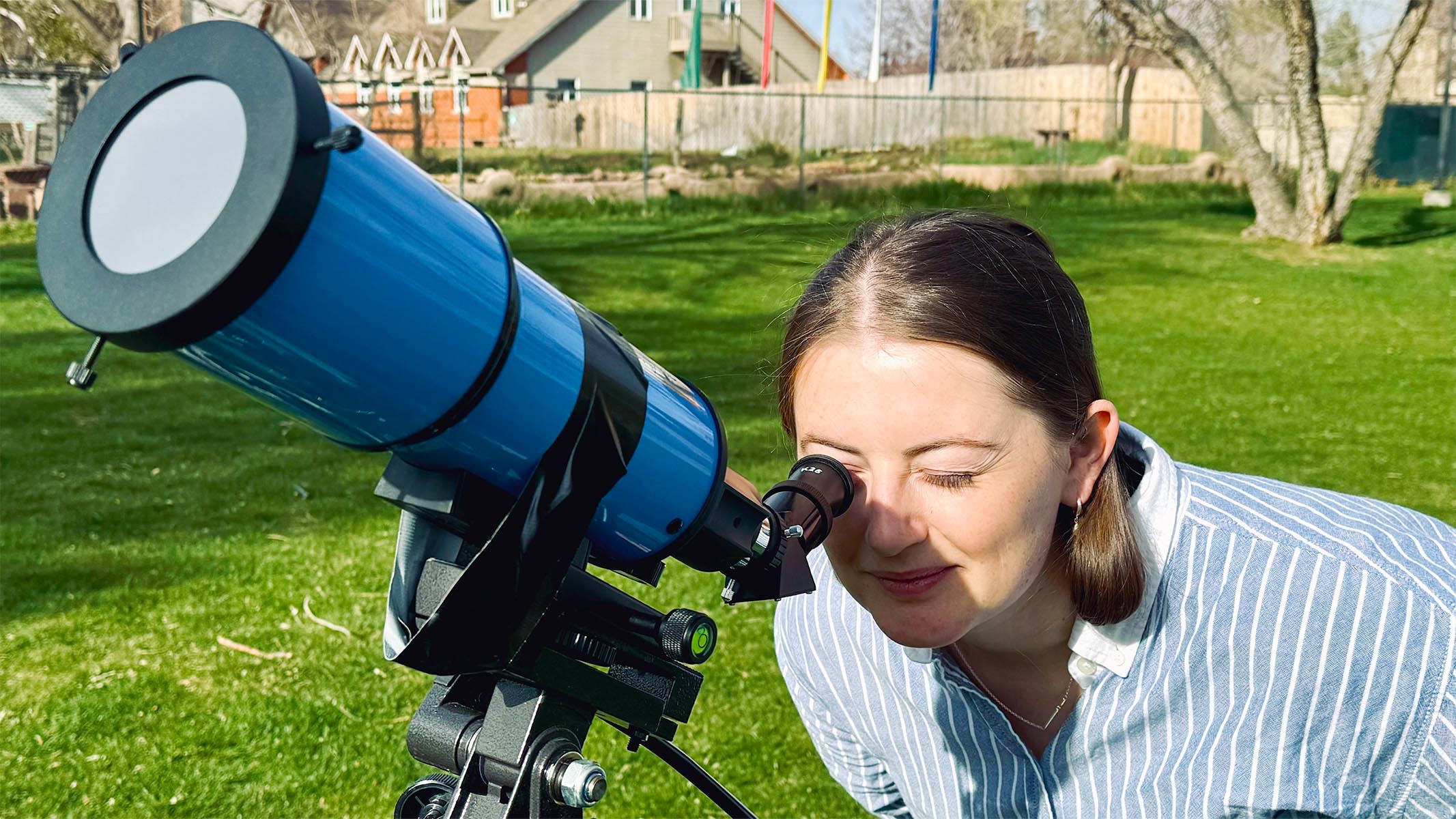NASA Authorization Bill Advances on Party Lines

WASHINGTON — Sparks flew on Capitol Hill April 30, where a NASA authorization bill that recommends deep cuts for Earth science made it out of a sharply divided committee on a party line vote.
The Republican-authored NASA Authorization Act for 2016 and 2017 (HR 2039) garnered not a single Democratic vote in the House Science Committee. The bill calls for cutting NASA’s Earth science budget by 18-32 percent and redistributing the funding to planetary science and human spaceflight programs.
House Science Committee Chairman Lamar Smith (R-Texas) said the bill "restores much-needed balance" to NASA. The committee’s GOP majority wants to see NASA devote more resources to exploring the solar system beyond Earth, and spend less on observing Earth itself.
Rep. Donna Edwards (D-Md.), the House Science space subcommittee's ranking member, said that sentiment was offensive, as was the majority’s decision to spring the bill on Democrats with only seven days notice and no debate at the subcommittee level.
"You called this rebalancing, I call it a travesty," Edwards said at the beginning of the two-hour markup.
In the end, the Republican-penned bill passed on a straight party-line vote, 19 Republicans over 15 Democrats. A substitute authorization bill offered by the House Science Committee's top Democrat, Rep. Eddie Bernice Johnson of Texas was shot down along party lines. The bill would have authorized increasing NASA's budget above the White House's 2016 request.
Authorization bills broadly serve as policy statements for appropriations committees, which write the spending bills that actually fund federal agencies such as NASA.
Breaking space news, the latest updates on rocket launches, skywatching events and more!
HR 2039 now awaits a vote on the House floor. The bill authorizes appropriations for 2016 under two different funding scenarios. In the so-called aspirational scenario, where the spending caps put in place by the Budget Control Act of 2011 are lifted, NASA would get $18.53 billion: Exactly what the White House requested in February.
In a "constrained" scenario, where the spending caps stay in place, the bill would authorize $18.01 billion for NASA in both 2016 and 2017, the same amount appropriated for 2015, but $519 million less than the aspirational scenario for 2016.
If signed, HR 2039 would reduce Earth science spending by as much as $575 million, compared with the 2015 appropriation. That would be about $750 million below the 2016 request.
Even in the aspirational scenario, the bill would deny an increase of nearly $130 million sought for NASA's space technology program.
On the other hand, SLS and Orion would not be cut in either scenario, and would be authorized for about $3.3 billion, some $65 million more than the 2015 appropriation and about $450 million more than the 2016 request.
Planetary Science could get as much as $1.5 billion in the bill that just passed the Science Committee: about $60 million more than in 2015 and nearly $140 million more than president’s request.
This story was provided by SpaceNews, dedicated to covering all aspects of the space industry.
Dan Leone is an editor and reporter for the ExchangeMonitor Publications covering the Department of Energy and Department of Defense nuclear weapons programs. From 2011 to 2016, Dan was the NASA reporter for the space industry publication SpaceNews, where he covered U.S. space agency policy, news and missions. He also produced the SpaceGeeks podcast showcasing interviews with space industry professionals. Dan earned a bachelor's degree in public communications from American University. You can find his latest project on Twitter at @leone_exm.



